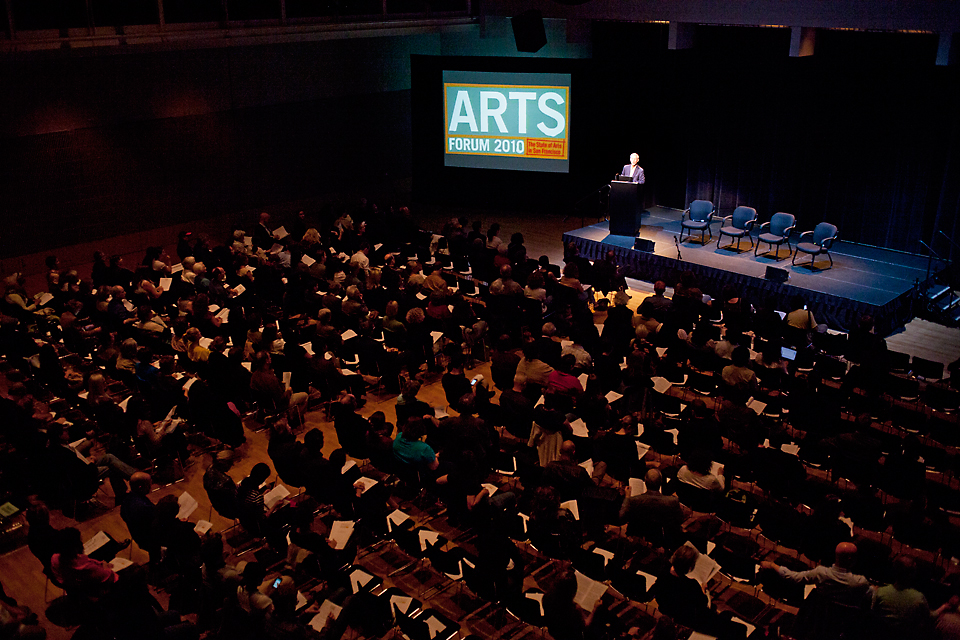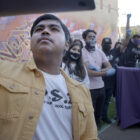Nonprofit art organizations are big business in San Francisco, employing 28,000 people and providing tens of millions in state and local revenues. And they want politicians to pay attention.
“There is nothing more important we can do than advancing art in America,” said Randy Cohen, vice president of local arts advancement at
Americans for the Arts. He said the arts have a large impact on job creation and state and local government revenue. “Arts are part of the solution, not the problem. Art means business.”
Cohen and other speakers at a public forum this week challenged candidates in the fall elections to pledge their support for the arts at a gathering held Tuesday at the Yerba Buena Center for the Arts. It was sponsored by San Francisco art and non-profit organizations including San Francisco Grants for the Arts, the San Francisco Foundation and the San Francisco Symphony.
“The state is at a crossroads. The city is in a budget quagmire,” Kary Schulman, director of
San Francisco Grants for the Arts and a panelist at the forum, wrote later in an e-mail. “The arts have always been and will continue to be a solution.”
Schulman said the arts groups expect candidates to develop strong arts policies. Her only specific request was that public officials pledge to attend at least one arts activity in the city each month.
Brad Erickson, executive director of
Theatre Bay Area, said civic leaders need to work with politicians to leverage money for the arts.
But some political hopefuls expressed concern about giving art programs money when city budgets have faced massive deficits and led to hundreds of layoffs.
“All sections of city government have to do more with less, there is no doubt about it that,” said
Scott Wiener, who is running for District 8 supervisor in November. “But arts funding is such a small portion of our overall budget that to think that we would make significant overall savings by slashing arts budgets is not accurate.”
“Art, entertainment and culture are part of the lifeblood of the city,” he said. “They are huge economic drivers in terms of tourism, job creation, and it is really important that as a city understand that sector, and we promote it, and ensure that it is thriving.”
Proposition J on the November ballot, which would increase the city hotel tax from 14 to 16 percent, could have significant implications for local art organizations.
Over the last year, according to San Francisco Grants for the Arts’ annual report, more than 20 percent of money raised from the hotel tax was used to fund the operating budgets of local art organizations, museums and programs. Despite a 20 percent decrease in its budget last year, San Francisco Grants for the Arts awarded grants totaling more than $8 million to 220 organizations.
Proposition J would direct funds from the hotel tax increase to the city’s general fund, and the money could be spent on any public service, not just arts. If passed, the proposition will be sure to spur debate about how to use the windfall. Arts organizations are not waiting for the fall to start the conversation.
“Funding for nonprofit arts is an investment for which there is a return,” Schulman said. “Arts are a vehicle to solve many problems, and the small portion of municipal funds that go the arts creates a hugely positive ripple effect.
“We need bread,” she said, “but we also need roses.”










